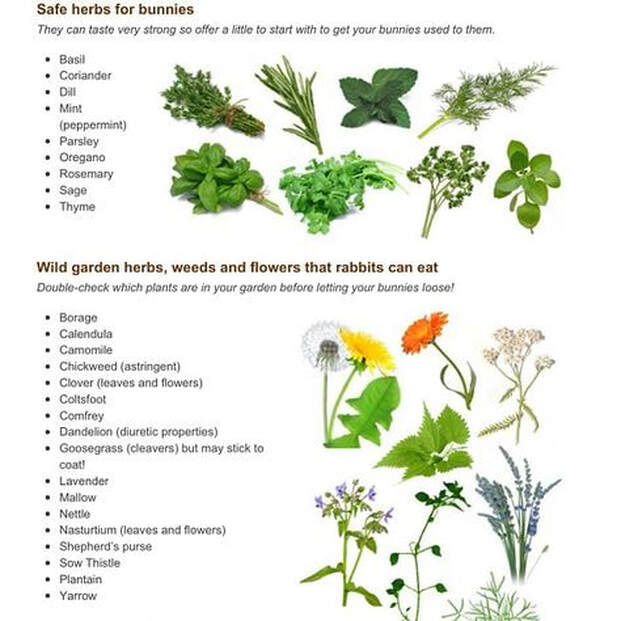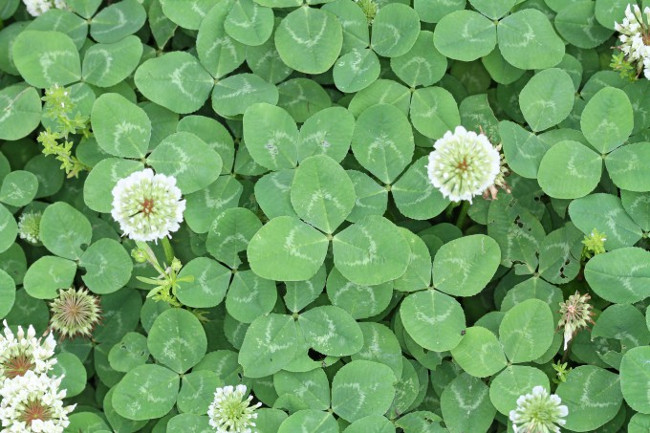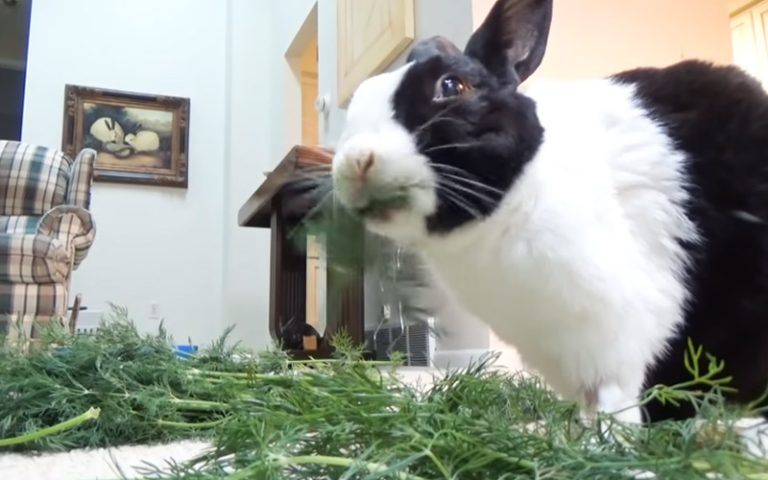Do Rabbits Eat Clover? | Why Rabbits Love Clover?
Yes, rabbits do eat clover. It is safe and can be a nutritious part of their diet.
Rabbits are herbivores, thriving on a variety of plants. Clover is a common plant found in gardens and fields. Many rabbit owners wonder if it’s suitable for their pets. Clover provides essential nutrients and fiber, supporting a rabbit’s digestive health.
This plant is rich in protein, vitamins, and minerals, making it a beneficial option. Offering clover can diversify a rabbit’s diet, keeping it interesting and tasty. However, moderation is key, as too much clover can lead to digestive issues.
The Allure of Clover for Rabbits

Credit: rabbitsbunniescalifornia.weebly.com
Clover is a favorite snack for many rabbits. Its sweet taste and soft texture attract these furry friends. Rabbits naturally seek out clover in the wild. Understanding why they love it helps rabbit owners provide better care.
Nutritional Profile Of Clover
Clover is not just tasty. It is also nutritious for rabbits. Here’s a quick overview of its nutritional benefits:
| Nutrient | Amount per 100g |
|---|---|
| Protein | 16g |
| Fiber | 25g |
| Fat | 1.5g |
| Calcium | 120mg |
| Vitamin C | 30mg |
This table shows why clover is appealing. High protein and fiber aid digestion. Calcium supports bone health. Vitamin C boosts the immune system.
Why Rabbits Are Attracted To Clover
Rabbits have strong instincts for finding food. Clover offers several features that draw them in:
- Sweet Flavor: Clover tastes great, making it enjoyable.
- Soft Texture: Its softness is easy on rabbit teeth.
- Variety: Different types of clover keep meals exciting.
- Natural Foraging: Rabbits love to explore and dig for food.
These traits make clover a top choice. Feeding rabbits clover helps satisfy their natural instincts. It also keeps them happy and healthy.
Clover In A Rabbit’s Diet
Clover can be a tasty and nutritious option for rabbits. This plant offers various benefits that enhance a rabbit’s overall health. However, it’s important to consider some risks too. Understanding both sides helps ensure a balanced diet for your furry friend.
Benefits Of Clover For Rabbits
Clover is rich in nutrients. It provides essential vitamins and minerals. Here are some key benefits:
- High in Fiber: Supports digestion.
- Rich in Protein: Aids in growth and muscle development.
- Contains Calcium: Strengthens bones and teeth.
- Vitamins: Offers vitamins A, C, and K.
- Low in Calories: Helps maintain a healthy weight.
Potential Risks And Considerations
While clover is beneficial, some risks exist. Understanding these helps keep your rabbit healthy.
- High Calcium Content: Too much calcium can cause kidney stones.
- Allergic Reactions: Some rabbits may be allergic.
- Pesticide Exposure: Wild clover may contain harmful chemicals.
Always introduce clover gradually. Watch for any adverse reactions. Consult a vet for personalized advice.
Types Of Clover And Rabbit Preferences
Rabbits are herbivores that enjoy a variety of plants. Clover is a popular choice among them. Different types of clover have unique flavors and nutrients. Understanding these types helps in choosing the best for your rabbit.
Red Vs. White Clover
Two common types of clover are red and white. Each type offers different benefits.
| Type of Clover | Characteristics | Nutritional Value |
|---|---|---|
| Red Clover | Has a rich, sweet flavor. Tall and bushy. | High in protein and fiber. |
| White Clover | Shorter and spread out. Mild taste. | Good source of calcium and minerals. |
Rabbits often prefer one type over the other. Red clover tends to be more popular. Its taste and texture appeal to many rabbits. White clover is also enjoyed, especially in gardens.
Rabbits’ Favorite Clover Varieties
Rabbits have specific preferences when it comes to clover.
- Red Clover – Preferred for its sweet taste.
- White Clover – Liked for its tender leaves.
- Crimson Clover – A rare treat, but tasty.
- Alfalfa Clover – High in protein, enjoyed by young rabbits.
Offering a mix of these clovers can keep your rabbit happy. Always introduce new types slowly. Monitor their reactions to ensure they enjoy it.
Feeding Clover To Domestic Rabbits
Feeding clover to domestic rabbits can be beneficial. Clover is nutritious and tasty. It provides essential vitamins and minerals. However, proper introduction and portion control are vital.
How To Introduce Clover Safely
Introducing clover to your rabbit’s diet should be gradual. Start with a small amount. Watch for any signs of digestive upset.
- Observe your rabbit for a few days.
- Look for changes in stool consistency.
- Check for any signs of discomfort.
If your rabbit shows no adverse reactions, gradually increase the amount. Always wash clover before feeding it. This removes dirt and pesticides.
Appropriate Clover Portions
Portion control is crucial for rabbit health. Too much clover can lead to digestive issues. The recommended serving size is:
| Rabbit Weight | Clover Portion |
|---|---|
| Under 2 lbs | 1/2 cup per day |
| 2-5 lbs | 1 cup per day |
| 5-10 lbs | 1 1/2 cups per day |
| Over 10 lbs | 2 cups per day |
Always balance clover with hay and fresh vegetables. This keeps your rabbit healthy.
Wild Rabbits And Clover Consumption

Credit: www.pinterest.com
Wild rabbits often seek out clover as a food source. They enjoy its sweet taste and rich nutrients. Clover is a favorite among many rabbit species. This section explores their feeding habits and seasonal preferences.
Observing Wild Rabbit Feeding Habits
Understanding how wild rabbits eat clover helps in their conservation. Here are key points about their feeding habits:
- Rabbits forage primarily during dawn and dusk.
- They prefer tender young clover leaves.
- Wild rabbits consume a variety of plants but favor clover.
- They often eat in groups for safety.
Rabbits use their strong teeth to clip clover. They can eat large amounts quickly. Watching them can reveal interesting behaviors.
Seasonal Availability And Impact
The availability of clover changes with the seasons. Here’s how it affects wild rabbits:
| Season | Clover Availability | Impact on Rabbits |
|---|---|---|
| Spring | High | Rabbits thrive and reproduce. |
| Summer | Moderate | Rabbits find food but may compete. |
| Fall | Low | Rabbits prepare for winter. |
| Winter | Very Low | Rabbits rely on stored fat. |
During spring, clover grows abundantly. Rabbits benefit from this nutritious food. In winter, food scarcity challenges their survival.
Alternatives To Clover In Rabbit Nutrition
Rabbits thrive on a varied diet. While clover is a popular choice, many safe alternatives exist. Providing diverse foods helps keep your rabbit healthy. Let’s explore some of these options.
Safe Plants And Vegetables for Rabbits
Many plants and vegetables are safe for rabbits. Here are some great choices:
- Leafy Greens: Romaine lettuce, kale, and spinach.
- Herbs: Basil, parsley, and cilantro.
- Vegetables: Carrots, bell peppers, and zucchini.
- Flowers: Dandelions, nasturtiums, and hibiscus.
Always wash these foods before serving. Fresh options keep your rabbit excited at mealtime.
Diversity In Rabbit Feeding
Offering a variety of foods is crucial. Different nutrients support a rabbit’s health. Aim for a mix of hay, vegetables, and pellets. Here’s a simple guide:
| Food Type | Recommended Amount |
|---|---|
| Hay | Unlimited |
| Vegetables | 1 cup per 2 lbs of body weight |
| Pellets | 1/4 cup per 5 lbs of body weight |
Introduce new foods gradually. Monitor your rabbit for any changes. This helps prevent digestive issues.
Remember, each rabbit is unique. Adjust their diet based on preferences. Keep exploring safe options for a happy, healthy bunny.
Expert Opinions On Clover As Rabbit Food
Understanding what rabbits can eat is crucial for their health. Experts provide valuable insights about clover as a food source for rabbits. Here’s what veterinarians and rabbit breeders say.
Veterinarian Insights
Veterinarians often have concerns about feeding rabbits clover. While clover is safe in moderation, too much can lead to health issues. Here are some key points:
- High in Calcium: Clover contains more calcium than hay.
- Potential for Obesity: Rabbits may gain weight if they eat too much clover.
- Digestive Issues: Overconsumption can cause gas and bloating.
Veterinarians recommend offering small amounts of clover as a treat. Always pair it with high-fiber hay for balance.
Recommendations From Rabbit Breeders
Rabbit breeders often have hands-on experience with clover. They share practical tips for feeding rabbits clover safely. Here’s what they suggest:
- Introduce clover slowly into the rabbit’s diet.
- Limit clover to once or twice a week.
- Monitor your rabbit’s health after introducing clover.
- Ensure fresh water is always available.
Many breeders believe clover can add variety. It offers essential nutrients when given responsibly. Always observe your rabbit for any adverse reactions.
| Aspect | Veterinarian Advice | Breeder Recommendation |
|---|---|---|
| Calcium Content | High | Monitor intake |
| Feeding Frequency | In moderation | 1-2 times a week |
| Health Monitoring | Watch for digestive issues | Observe behavior after feeding |
Frequently Asked Questions
Do Rabbits Like Eating Clover?
Yes, rabbits enjoy clover as a tasty treat and a nutritious addition to their diet.
Is Clover Safe For Rabbits?
Clover is generally safe for rabbits, but it should be fed in moderation to avoid digestive issues.
How Often Can Rabbits Eat Clover?
Rabbits can have clover a few times a week, ensuring a varied diet to maintain health.
What Types Of Clover Can Rabbits Eat?
Rabbits can eat white and red clover, both offering essential nutrients.
Can rabbits eat clover?
Yes, rabbits can eat clover, and it’s actually a great addition to their diet. Clover provides important nutrients and is safe for rabbits to nibble on. Both the leaves and flowers are edible.
However, like any treat, it’s best to offer clover in moderation. Too much clover can cause digestive issues, especially in rabbits with sensitive stomachs. Fresh clover from your yard or garden is ideal, but make sure it’s pesticide-free.
Choose wisely for their well-being!







